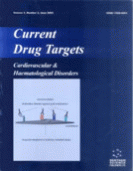Abstract
Retinoids, the natural and synthetic derivatives of vitamin A, exert broad biological effects and have been used clinically to treat a variety of dermatological and neoplastic diseases. The principal mode of action of many retinoids is through the binding and activation of a family of nuclear receptors that modulate gene transcription. Recent evidence demonstrates that retinoids effectively attenuate experimental vessel wall narrowing due to atherosclerosis, post-balloon injury stenosis, and bypass graft failure. Moreover, retinoids promote a differentiated phenotype in smooth muscle cells (SMC) which, unlike other muscle types, is not fixed and is subject to considerable modulation in disease states. A growing number of in vitro studies have reported desirable effects of retinoids on cell migration, proliferation, apoptosis, matrix remodeling, fibrinolysis, coagulation, and inflammation, all of which impinge on vascular disease. Since vascular SMC and endothelial cells (EC) express most retinoid receptors, the mechanisms underlying retinoid-mediated events in these cells and the vessel wall likely relate to an altered transcriptome. In fact, there is a growing list of retinoid-response genes encoding proteins that likely mediate the actions of retinoids. Retinoid-response genes, therefore, represent promising targets of therapy for the refined treatment of vascular diseases. The purpose of this review is to summarize the emerging importance of retinoids in the control of vascular cell responses with special emphasis on potential mechanisms underlying retinoid-induced changes in the vessel wall following injury. Given the similarities in the pathogenesis of neoplasia and vascular disease, it is reasonable to consider testing the efficacy of retinoids for the treatment of human vascular disease.
Keywords: atherosclerosis, restenosis, inflammation, retinoic acid, receptor, differentiation, smooth muscle, endothelial cell, thrombosis
 12
12













